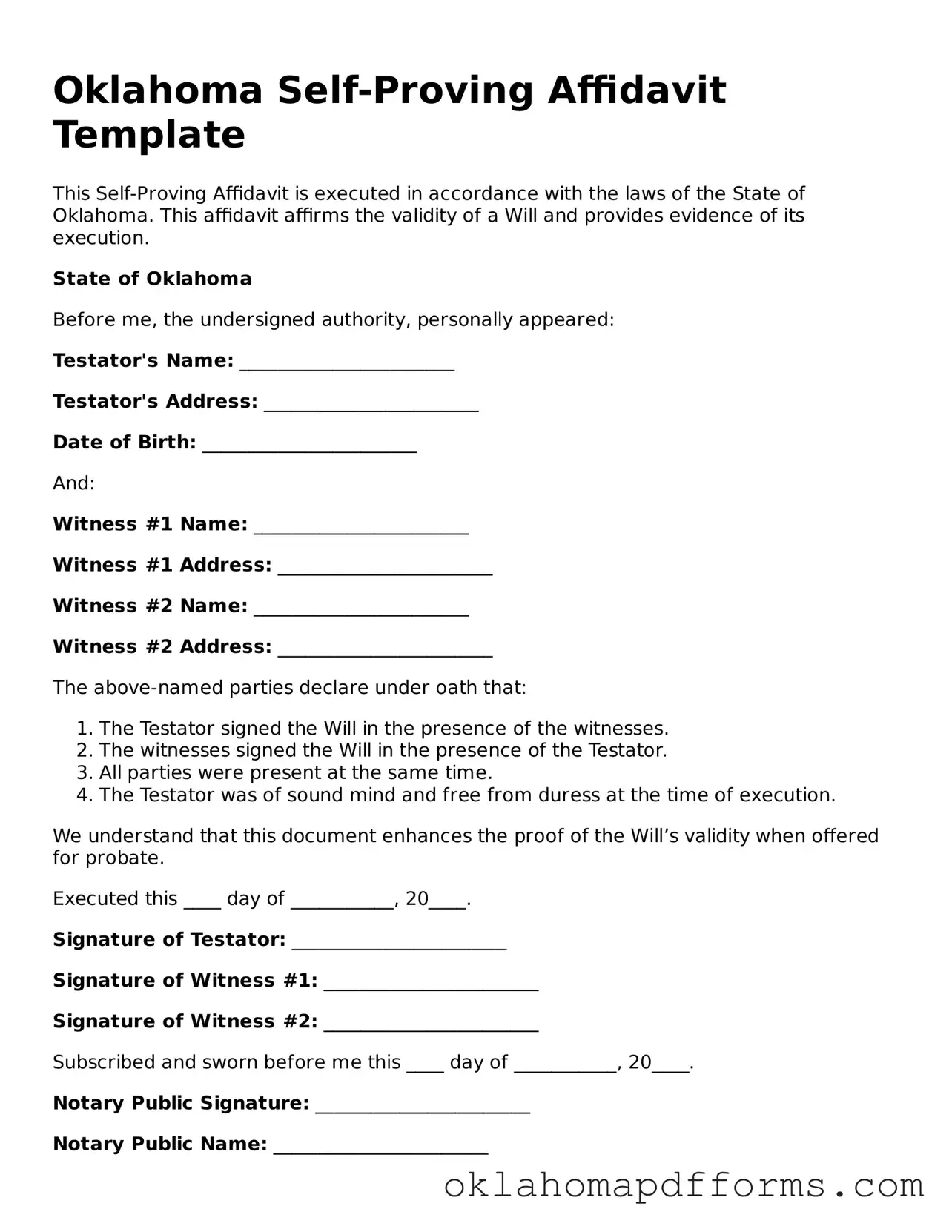Free Self-Proving Affidavit Document for the State of Oklahoma
The Oklahoma Self-Proving Affidavit is a legal document that allows a testator's will to be validated without the need for witnesses to testify in court. This form streamlines the probate process, providing a more efficient way to establish the authenticity of a will. Understanding its importance can help ensure that a loved one's final wishes are honored smoothly and effectively.
Open Document Now

Free Self-Proving Affidavit Document for the State of Oklahoma
Open Document Now

Open Document Now
or
▼ Self-Proving Affidavit
Your form isn’t ready yet
Fill out Self-Proving Affidavit digitally in just minutes.